Biomedical Science
Biomedical Science
Biomedical Science
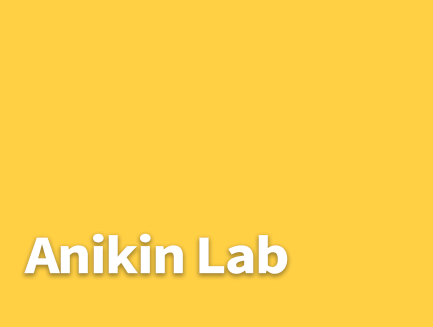
Anikin Lab
Research in the laboratory focuses on mechanisms of mitochondrial gene expression and its regulation. We study an array of nuclear DNA encoded protein factors that control the expression of mitochondrial genes.
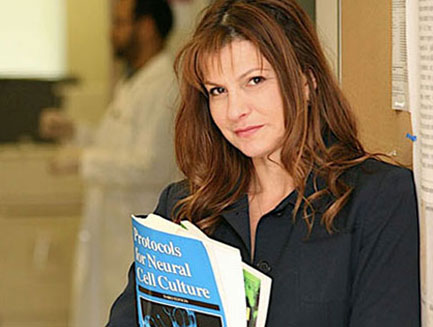
Cell and Gene Therapy Center
Dr. Paola Leone's research is on neurological diseases that can be treated using the latest gene transfer technologies and cell transplantation methods.

Chandler Lab
Humans are exposed to stress daily throughout their lives. During a stressful experience, the brainstem nucleus locus coeruleus becomes engaged and releases norepinephrine throughout the central nervous system...

The Chang Lab
The Chang lab studies the physiology and pathology of the nervous system. Our research focuses on host-microbe interactions and brain-gut axis signaling.
Demarest Lab
Focusing on cancer, T-cell acute lymphoblastic leukemia, mouse models of disease, therapeutic delivery strategies, biodevices and coating materials...

Devilbiss Lab
Role of neuromodulators in shaping the neural dynamics of cognitive and behavioral flexibility. Electrophysiological signatures of cognitive dysfunction and therapeutics. Mechanisms of cognitive dysfunction following concussion and mild traumatic brain injury...

Goldberg Lab
Cells must communicate with each other to coordinate the development and survival of an animal. This communication can be mediated by diffusible factors that pass between cells, or by direct contact through cell junctions. We are interested in how intercellular communication affects cell growth and differentiation, with an emphasis on how cell communication can control tumor cell growth, invasion, and metastasis.

The Gould Lab
Imagine your favorite food. Now imagine being told you can never eat it again because you risk injury or death. That is the reality faced by millions of people suffering from long term swallowing dysfunction or dysphagia.
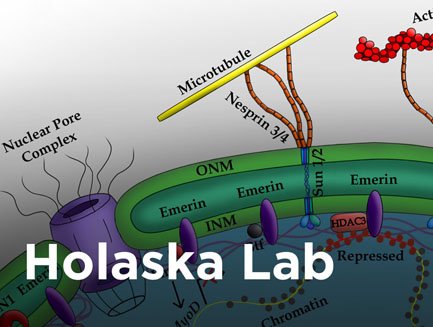
Holaska Lab
My research program studies the molecular mechanisms underlying how the nuclear envelope regulates some of these fundamental cellular processes, including genomic architecture, RNA transcription and cell signaling.
Kohout Lab
The Kohout lab studies how cells communicate. We focus on the interface between electrical and chemical signaling, thus integrating biophysics, molecular neuroscience, and cell biology. By understanding how these fundamental communication pathways work, we can better understand how and why they fail in disease states. Our current focus is on the voltage sensing phosphatase, a unique combination of a voltage sensor coupled to an enzyme, the only known voltage regulated enzyme.

Kumari Lab
The regulatory pathways associated with tongue homeostasis and genes responsible for taste fungiform papilla/taste bud alteration after HH pathway blockade are not clearly understood and remain challenging to understand tongue physiology in response to therapeutic interventions such as HH signaling blockade.

Loweth Lab
The Loweth lab is interested in understanding how exposure to drugs of abuse such as psychostimulants lead to long-lasting changes in neuronal circuitry and motivated behavior that ultimately drive compulsive drug taking and drug seeking behavior.

Manvich Lab
Our primary research program is focused on understanding the interactions between psychosocial stressor exposure, stress-coping strategies, and the behavioral effects of drugs of abuse.

Markov Lab
The main focus of our research is regulation of mitochondrial gene expression in fungi, specifically, pathogenic yeast species, including Candida albicans and Candida auris.

Navarra Lab
We utilize a combination of in-vivo electrophysiology and behavioral pharmacology to study the neurobiology of sensory signal processing, decision making, and higher order cognitive functions.

Pestov Lab
Our group focuses on mammalian ribosome biogenesis and biochemical pathways that monitor the health of the protein synthesis machinery. We are particularly interested in stress-induced damage to the ribosome and how changes in ribosome homeostasis contribute to human disease.

Rood Lab
Social interaction has a profound effects on both our behavior and our emotional well-being. Positive social interactions have been shown to have lasting benefits for human health, whereas negative social interaction can lead to worse health outcomes and in severe cases can be causative in the onset of illness

Santhanam Lab
Our research laboratory is dedicated to elucidating the mechanisms governing mCa2+ uptake, with the aim of understanding the underlying mechanisms of IR injury and HF.

Shcherbik Lab
Research in my laboratory is focused on the ribosome – a complex molecular machine that performs synthesis of polypeptides in living cells.

Waterhouse Lab
The primary research focus of my laboratory is to understand the role of the central monoaminergic systems in brain function and behavior.

West Lab
Our lab focuses on researching neural circuits, mediating, learning, memory, and decision-making.

Yin Lab
Despite advances in antibiotic therapy, there is a significant need for more efficacious treatments of severe bacterial infections. The host responds to bacterial infection by activating the innate immune system to clear pathogen by phagocytic and killing mechanisms...